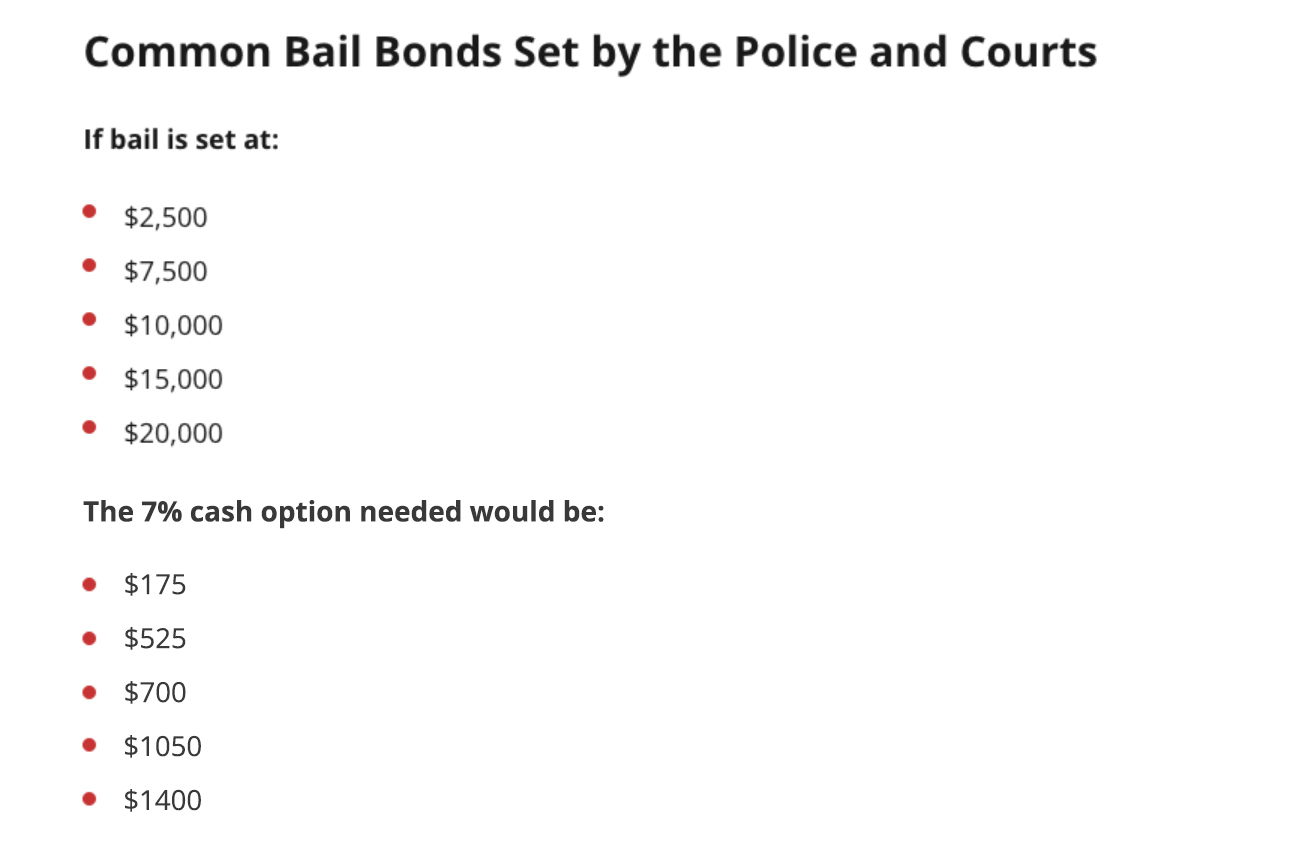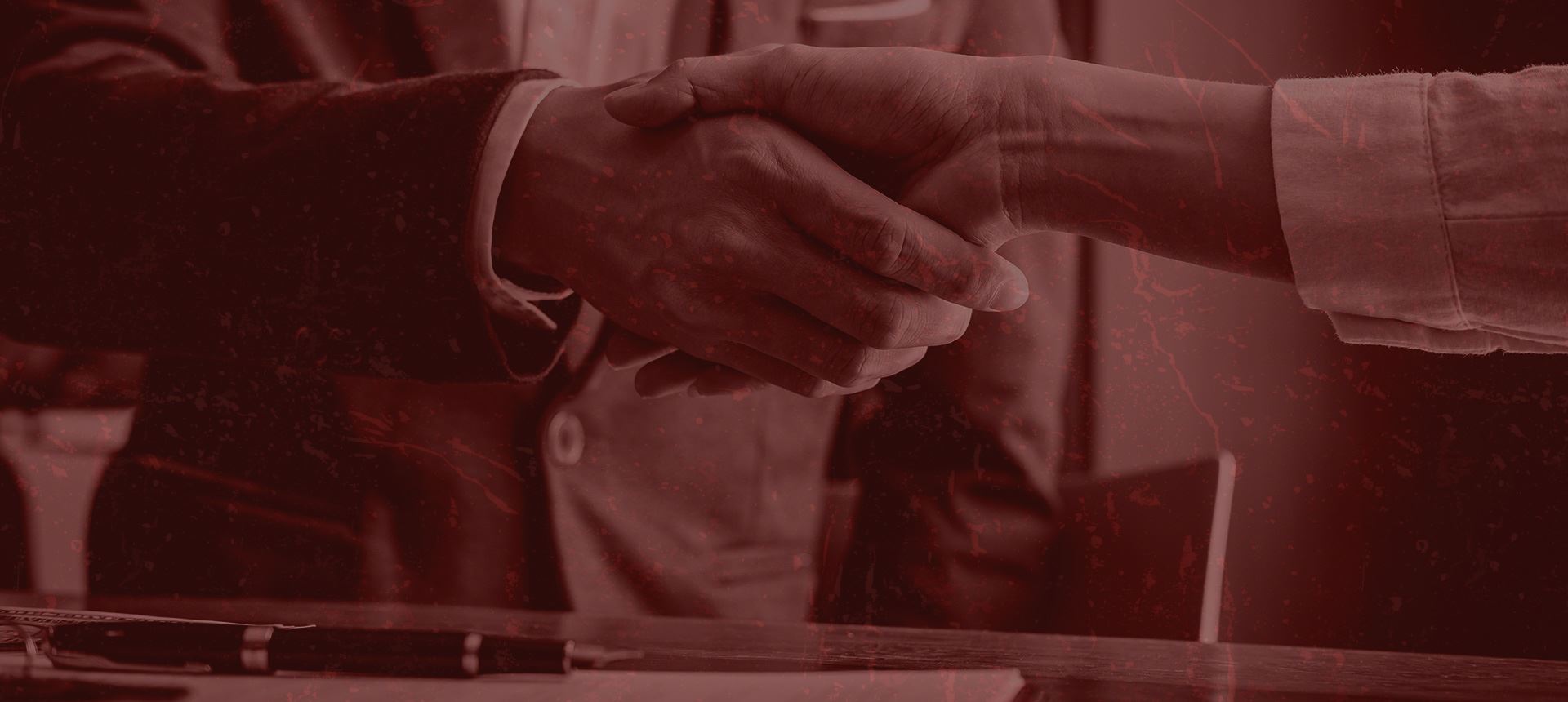
Windham County Bail Bonds Lawyer
What Happens If You Don’t Pay Your Bail Bonds?
If you are reading this, you are likely not now in police custody. Maybe you were arrested and you’ve already been released. If that is the case, keep reading to learn what is likely to happen next.
More probably, you are reading this because someone you care about has been arrested recently and maybe you want to help. Please keep reading to learn what to expect and how you might be able to help.
You’ve been arrested. Now what?
- First, don’t talk to the police!
- Second, don’t talk to the police!!
- Third, don’t talk to the police!!!
You’ve heard it on TV, in the movies, and maybe now in real life, the police aren’t kidding when they tell you, “anything you say can and will be used against you.” They mean it!
You have the right to remain silent. You have the right to have your lawyer present when the police question you. Don’t give up your rights! If you want to help yourself, don’t talk to the police without your lawyer!
So what should you do?
Politely but firmly tell the police you don’t want to talk to them without your lawyer present. If they keep trying to get you to talk (they have about 1,001 tricks), just keep telling them you don’t want to talk to them without your lawyer. Eventually, they’ll get the idea you don’t want to talk to them or they’ll get tired and stop trying to ask you questions.
Now what? You’re still in police custody.
At some point the police are going to give you the opportunity to be released. If the crime you’ve been charged with is minor enough, you don’t have any or much of a prior criminal record, and you haven’t failed to appear in court when you were supposed to be there before, you will probably be released on a written promise to appear in court (a PTA). If you are released on a PTA, you will be asked to sign a promise to appear form. Sign it and get away from the police as soon as you can.
If you are not released on a PTA, the police could release you on a non-surety bond. A non-surety bond can seem like a PTA because you will be released from custody without posting a bail bond, it doesn’t cost you any money. But if you read the papers you sign, you will see that if you fail to appear in court when you’re supposed to be there, the state can come after you to collect the non-surety bond you agreed to pay before you were released from police custody. Again, if you are offered a non-surety bond, sign the papers and get out of there as soon as you can.
If you aren’t released on a PTA or a non-surety bond, either the police or a bail commissioner will set a bail bond that must be posted before your release. The more serious the crime you are charged with, the higher the bail will be. The longer your prior criminal conviction record is, the higher the bail will be. The more you’ve failed to appear in court before when you were supposed to be there, the higher the bail will be.
How do you get out of police custody once a bail bond has been set?
Here’s where family and good friends come in. You call someone you think may be willing and able to help you. If the bail is low enough and they can post the entire amount, this means they give the police or a court the full amount of the bail, you will be released from custody. As long as you appear in court when you are supposed to be there, at the very end of your case, the person who posted your bail will get all of his or her money back.
Your Windham County lawyer can’t really help you. Lawyers are prohibited from posting bail for their clients. We could refer you to a bail bonds person we've worked with and trust to help you.
Ten Percent Cash Bail Alternative
As of January 2020, the Connecticut rules governing bail have changed. Under the new rule, for any bail bond set at $50,000 or less, to be released from custody the arrested person must be given the option of posting 7% of the bond in cash. As long as the defendant appears at all court appearances in his or her case as required, the cash deposited will be returned in full to the person who posted it at the end of the case.
This means, if you are arrested and a bail bond is set at $50,000 or less, you or someone else could give the police or the court 7% of the bail bond amount in cash to secure your release from custody. The money deposited would be returned in full at the end of your case as long as you showed-up for court as required.

Bail Bondsmen
If you cannot afford to deposit ten percent of the bail bond, employing a reputable bail bondsman is another option. Bail bondsmen are essentially insurance agents. For the cost of the premium you pay them, the bail bond company will post the bail bond to secure your release from custody. If you abscond, that is you do not appear for your required court appearances, and if the bail bond company cannot secure your return to court, it will be ultimately required to pay the full amount of the bond set. This is an over-simplification because there are quite a few steps in between but in the end, if you do not return to court, the bail bond company is required to pay your bond in full.
The bail bond industry is highly regulated by law. There are minimum and maximum amounts they are allowed to charge for bail bonds. The complicated details of how this all works is beyond the scope of this webpage and you don’t really need to know it. What you need to know is that a reputable bail bondsman wants to help you get out of jail. He or she will be willing to work with you to pay your premium for the bail bond within the legal restrictions imposed on him or her by law.
What do you do if the bail bond set is too high to be paid in full?
This is where bail bondsmen come in. While you are still in custody, your family member or friend will need to secure the services of a bail bondsman. For the fee the bail bondsman charges, he or she will post your bond so you can get out of custody. The bail bondsman then becomes responsible for paying the state the full amount of your bail bond if you are ordered re-arrested for a failure to appear in court.
The fee the bail bondsman charges is like a car insurance premium. You pay the car insurance premium, and if you have an accident, the insurance company pays the claim for damages. If you don’t have an accident, you don’t get your premium back because the premium is paid for your insurance policy. In the case of the bail bondsman, you pay the fee to get out of custody. But you don’t get back the fee you paid the bail bondsman even if you show up for all your court appearances just like you don’t get your car insurance premium back if you don’t have an accident.
It’s all much more complicated than what’s explained here. But what you need to know is, when you pay the bail bondsman, you are paying a fee you won’t get back. Once paid, the bail bondsman is ultimately responsible to pay the full amount of your bail if you are ordered re-arrested for a failure to appear in court. But you get out of police custody when the bail bondsman posts your bail.
After you are out of police custody, it’s a good time to call an experienced Windham County criminal defense lawyer. Please call The Law Office of Jerome Paun for your free initial case consultation.
What if I can’t post the bail set at the police station?
If you can’t post the bail bond, you will remain in custody. If you are male, you will most likely be transported from the police station or state police barracks to one of the four Department of Corrections (DOC) pretrial holding centers for men. Where you are taken depends on where you were arrested and in which court your case will be heard.
If you were arrested in Eastern Connecticut and your case is pending in a Danielson, Norwich or New London court, you will most likely be transported to Corrigan Correctional Center at 986 Norwich-New London Turnpike, Uncasville, (860) 848-5700.
If you were arrested in the central part of Connecticut, the greater Hartford-Waterbury-New Britain-Enfield-Tolland area, and your case is pending in a court in that area, you will probably go to the Hartford Correctional Center at 177 Weston Street, Hartford, (959) 200-3000.
If you were arrested and your case is pending in a court in the southern part of the state, you will probably be taken to the Bridgeport Correctional Center at 1106 North Avenue, Bridgeport (475) 225-8000, or the New Haven Correctional Center at 245 Whalley Avenue, New Haven (203) 974-4111, depending on which is closer to where you were arrested and the court where your case is pending.
If you are female, there is only one place in Connecticut you can be taken, York Correctional Institution at 201 West Main Street in Niantic, (860) 451-3010.
Can I bail out from jail?
Yes. If you can arrange to have bail posted by a family member, friend, or with the services of a bail bondsman, your bail can be posted at the jail and you will be released from the jail.
What happens if I can’t bail out from jail?
You will be brought to court from jail the next court business day. That’s the next morning after your arrest, if you were arrested between Sunday and very early Friday morning. If you were unlucky enough to be arrested later on Friday or on the weekend, you will be brought to court on Monday morning unless Monday is a court holiday. If it is, you will be brought to court on Tuesday morning.
When you are brought to court, a Superior Court Judge will review your bail. You will be represented by either a public defender or your own lawyer, if you’ve retained one. At that hearing, the judge will listen to recommendations from the bail commissioner and will hear arguments from the prosecutor and your attorney as to what bail should be set. The judge will then decide if your bail should remain as set, or if it should be increased, or decreased.
Once the judge sets your bail in court, if someone posts that bail for you while you are in the courthouse, you will be released from custody right there. If your bail is not posted while you are in the courthouse, it can be posted at the jail at any time.
What happens if I can’t post the bail set by the court?
You will go back to jail. If you can post your bail before your next court date, you can bail out from jail as discussed above. If you can’t post the bail set by the court, your lawyer can ask the court to reconsider your bail at later court dates.
Is it important to bail out of jail?
Yes. Statistics show that people who are not in jail while their cases are pending get better results in court. There are a number of reasons for this. One is that if you are not in jail you can more easily see and speak with your lawyer to prepare your defense. Another is that if you are out of jail, it is easier to wait as long as needed to go to trial. Yet another is that if you are out of jail, you can work, go to school, get counseling and other treatment that might be helpful for your case. There are lots of other reasons too, not the least of which is nobody wants to be locked up in jail.
Can You Sue A Bail Bondsman?
A bondsman can take their client to court if they are not making their bond payments. They can sue the defendant for any additional late fees or legal fees that accumulate because of their client’s incompetence. An agreement with a bondsman is contractual and violating it can land you in additional trouble.
Please call The Law Office of Jerome Paun for your free initial case consultation.

OUR FIRM IS DIFFERENT
Read What Sets Us Apart
-
Top 100 Criminal Defense Attorney: Recognized Excellence Since 2014The National Trial Lawyers and American Society of Legal Advocates have recognized Attorney Jerome Paun as a Top 100 criminal defense attorney since 2014.
-
Your First Step to Justice: Free Initial Consultation for New Clients!All of our new clients are entitled to a free initial consultation. Call or email now!
-
Decades of Expertise: Navigating Legal Challenges for Over 40 YearsAttorney Paun has over 40 years of experience helping people in trouble.
-
Comprehensive Defense: Protecting Your Rights Against Serious Charges in Connecticut CourtsWe defend adults and juveniles against all serious felonies, misdemeanors, and OUI's in Connecticut courts.


Hear From Our Happy Clients
At The Law Office of Jerome Paun, your satisfaction is our priority! See for yourself what our clients have to say about working with us.
-
"Excellent Lawyer says it all!"Covers all clients needs!- Past Client
-
"I felt very comfortable relying on his expertise."Attorney Paun was so helpful, thorough, knowledgeable, friendly, and attentive to all my many, MANY questions about the whole process.- Rebecca
-
"Best in CT!"Attorney Paun was meticulous and detail-oriented in bringing a complex case to a mutually acceptable outcome.- Val
-
"The best"He worked diligently, kept me informed without sugar-coating the process, and proved to be an invaluable ally. I can only imagine what would have happened if I didn't find him.- Bob